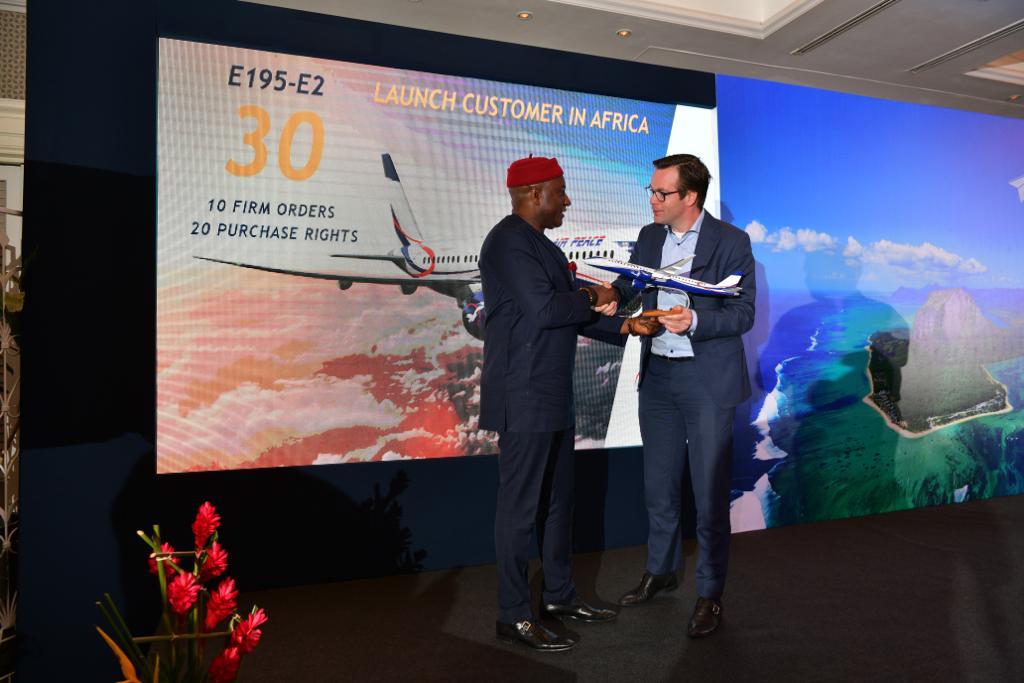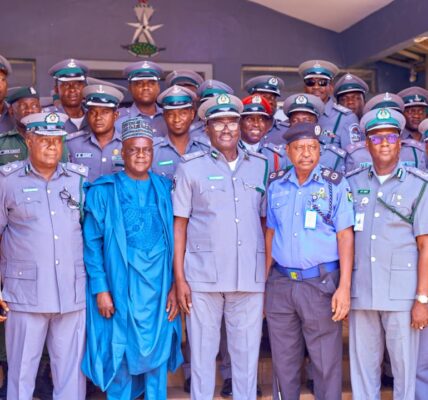More reactions have continued to emerge over the recent ruling by a Federal High Court that classified oil rigs as sea vessels liable to complying with the prevailing Cabotage Act of the Federal Government.
In his response, the Director-General of the Nigerian Maritime Administration and Safety Agency (NIMASA), Dr. Dakuku Peterside, averred that the the judgement of the Federal High Court in the case involving Seadrill Mobile Unit Nigeria Limited and the Federal Ministry of Transportation (FMOT), which confirmed NIMASA’s right to collect fees from drilling operations will deepen revenues coming from Cabotage regime to the government.
Recall that NIMASA was later joined as a necessary party in the suit originally instituted by Seadrill Mobile Unit Nigeria Limited against the FMOT.
Dakuku said the judgement was “yet another landmark attempt by the judiciary to set the record straight and boost implementation of our Cabotage law”.
Though NIMASA boss linked the ruling to generating opportunities for jobs, analysts said chances of jobs are more limited than more income when cabotage regulation is considered.
Business Hilights recalls Seadrill Mobile Unit Nigeria Limited, had instituted the suit to determine whether drilling operations fell within the definitions of “Coastal Trade” and “Cabotage” under the Coastal and Inland Shipping (Cabotage) Act, and whether on a proper interpretation of the Cabotage Act, drilling operations fell within the definition of “vessels” under the Act.
In his judgment, Justice Babs Keuwumi, ruled that drilling operations fell within the ambit of exploration, exploitation, or transportation of the mineral or non-living natural resources of Nigeria, whether in or under Nigerian waters, as provided under the definition of coastal trade in the Cabotage Act.
Besides, the court held that the combined reading of the Admiralty Jurisdiction Act, Interpretation Act, and Cabotage Act meant that drilling rigs fell under the definition of vessel under the Cabotage Act.
However, having determined the two key questions in the affirmative, the court accordingly granted NIMASA leave to collect all outstanding payment of the 2% Cabotage surcharge from owners of drilling rigs and associated platforms.
Industry legal pundits say the implication of the landmark judgment among others is oil rigs operating on Nigerian waters are subject to the provisions of the Cabotage Act.
Dakuku further averred that “The Cabotage Act is very clear and it has again been interpreted and confirmed by the court. We expect that with this judgement, all parties will obey the court order and do the needful. It is all for the growth of the Nigerian maritime sector and the country’s economy at large.
“On our part, as a responsible Agency, we will continue to sensitise stakeholders, because every craft that is engaged in Coastal and Inland Trade must pay the Cabotage fees.”
Whereas he maintained silence on the effective takeoff of access to Cabotage Vessel Financing Fund (CVFF) by indigenous operators as provided by law, NIMASA boss restated the determination of the Agency to end the Cabotage Waiver regime in the next five years.
Extract from Section 2(d) of the Cabotage Act provides that Coastal Trade or Cabotage means the engaging by vessel in any marine transportation activity of a commercial nature in Nigerian waters and the carriage of any goods or substances whether or not commercial nature within the waters of Nigeria. NIMASA is the government Agency responsible for regulating and promoting shipping activities as enshrined in the NIMASA Act, 2007.
It has not been clear if Seadrill Mobile Unit Nigeria Limited, will appeal the High Court judgment or comply.









